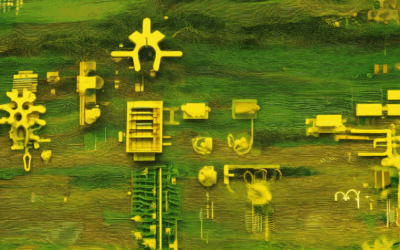Conservation: Preserving Our Planet for Future Generations

1. Importance of conservation
Conservation is crucial for preserving our planet for future generations. It involves protecting and managing natural resources, habitats, and ecosystems to prevent degradation or destruction. The importance of conservation cannot be overstated as it ensures the survival of countless species and the health of our planet. By conserving our natural resources, we can ensure that they are available for future generations to enjoy and use sustainably. Additionally, conservation helps to mitigate the negative effects of climate change and promotes a healthy environment for all living organisms. In essence, conservation is essential for maintaining a thriving and sustainable planet for future generations.

2. Environmental impact of human activities
Human activities have had a profound impact on the environment. From deforestation and land degradation to pollution and climate change, our actions have caused significant damage to the planet. It is important to understand the environmental impact of these activities in order to develop effective conservation strategies. Some examples of human activities with significant environmental impact include:
* Deforestation: The clearing of forests for agriculture, logging, and urban development has resulted in the loss of habitat for many species and contributes to climate change through the release of carbon dioxide.
* Land degradation: The overuse of land for agriculture and grazing has led to soil erosion, desertification, and a decrease in biodiversity.
* Pollution: Air and water pollution from industrial and transportation activities has negative effects on human health and ecosystems.
* Climate change: The burning of fossil fuels has increased the concentration of greenhouse gases in the atmosphere, leading to rising temperatures and changes in weather patterns.

3. Natural resources depletion
Natural resources depletion refers to the decline in the availability of natural resources such as water, soil, minerals, and fossil fuels. This occurs when these resources are extracted at a faster rate than they can be replenished or replaced. As a result, the quality and quantity of these resources diminish over time, leading to long-term negative consequences for our planet. Depletion of natural resources can have severe environmental, social, and economic impacts, including desertification, landslides, floods, food and water scarcity, poverty, and unemployment. It is crucial that we address this issue through sustainable practices and responsible resource management to ensure that future generations can continue to benefit from the earth’s abundant resources.

4. Biodiversity loss
Biodiversity loss refers to the decline in the variety of life on Earth. This includes the loss of species, genetic diversity, and ecosystems. Human activities such as deforestation, overfishing, and pollution have contributed to this loss. It is estimated that we are currently losing species at a rate of 100 to 1,000 times higher than the natural rate of extinction. This not only affects the balance of ecosystems, but also threatens the survival of many species. It is important to address biodiversity loss in order to ensure the long-term health and stability of our planet.

5. Climate change
Climate change is one of the most pressing issues facing our planet today. It is caused by human activities such as burning fossil fuels, deforestation, and industrial processes that release greenhouse gases into the atmosphere. These gases trap heat, leading to a rise in global temperatures and causing a host of problems including rising sea levels, more frequent and severe weather events, and changes in ecosystems and wildlife habitats.
The effects of climate change are widespread and can be felt in every corner of the globe. From more frequent droughts and floods, to more intense heatwaves and storms, the consequences of our actions are becoming increasingly apparent. If left unchecked, climate change could have devastating consequences for future generations, including food and water scarcity, increased poverty and conflict, and the displacement of millions of people.
To combat climate change, it is essential that we take action now. This includes transitioning to renewable energy sources, such as solar and wind power, reducing our carbon footprint through sustainable practices, and supporting policies and regulations that encourage environmental protection. By working together and taking concrete steps towards conservation, we can preserve our planet for future generations and ensure a healthy and sustainable future for all.

6. Renewable energy sources
Renewable energy sources refer to any form of energy that can be replenished naturally within a relatively short period of time. These sources include solar power, wind power, hydroelectric power, geothermal power, and biomass. Compared to non-renewable sources such as fossil fuels, renewable energy sources have several advantages. They are abundant, versatile, and sustainable. By using renewable energy sources, we can reduce our dependence on finite resources and minimize our carbon footprint. Additionally, these sources of energy are becoming increasingly cost-competitive with traditional fossil fuels, making them an attractive option for both individuals and businesses. Governments around the world are also investing heavily in renewable energy technologies, recognizing their potential to drive economic growth and create jobs while protecting the environment.

7. Sustainable agriculture
Sustainable agriculture is an important aspect of conservation as it involves the use of farming practices that are environmentally friendly and can help preserve our planet for future generations. These practices include crop rotation, the use of natural pest control methods, and minimizing the use of chemical fertilizers and pesticides. Additionally, sustainable agriculture also promotes soil health and water conservation, which are crucial for maintaining the balance of ecosystems. By adopting these practices, we can ensure that our food supply remains abundant and healthy while also preserving the environment for future generations.

8. Eco-friendly technology
Eco-friendly technology refers to the development and use of products, processes, and systems that minimize negative environmental impacts while maximizing positive benefits. This includes the use of renewable energy sources such as solar, wind, and hydro power, as well as the implementation of sustainable manufacturing practices that reduce waste and emissions. Additionally, eco-friendly technology also involves the development of new materials and products that are biodegradable or can be recycled, reducing the amount of waste in our landfills and oceans. The goal of eco-friendly technology is to create a more sustainable future for generations to come.

9. Public awareness and education
Conservation begins with understanding. The importance of preserving our planet cannot be overstated, and public awareness and education play a crucial role in this effort. It is essential that individuals understand the consequences of their actions on the environment and learn how to make sustainable choices. This can include simple changes such as using reusable bags, reducing water consumption, and turning off lights when not in use. By raising awareness and educating the public, we can create a society that values conservation and works together to protect our planet for future generations.

10. Government policies and regulations
Governments play a crucial role in promoting and implementing conservation efforts. They can enact laws and regulations that encourage sustainable practices and discourage harmful ones. For example, governments can create incentives for businesses and individuals to adopt renewable energy sources, such as solar or wind power. They can also impose penalties on those who pollute excessively or engage in other environmentally damaging activities. Additionally, governments can invest in research and development of new technologies that promote conservation and sustainability. By working together with NGOs and other stakeholders, governments can create a comprehensive approach to conservation that benefits both people and the planet.




0 Comments